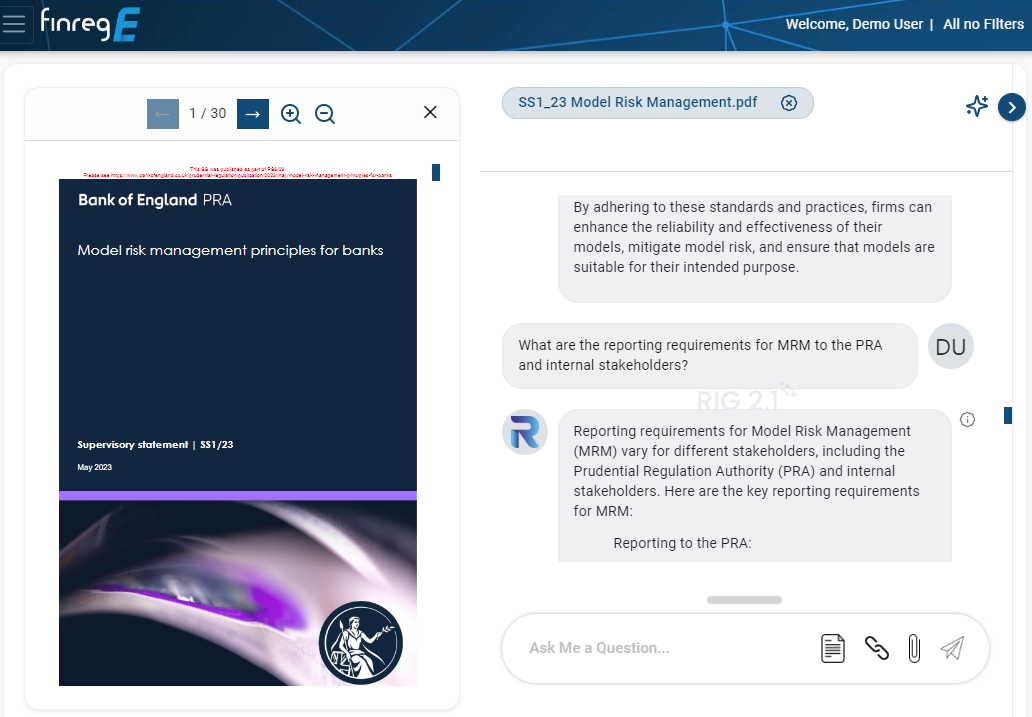The modern business landscape is a web of interconnected and interdependent organisations; a fact that creates a level of complexity that is not dissimilar to that of the internet itself.
While this complexity has helped businesses be much more agile and data-savvy compared to the past, it has also brought forth a set of unique challenges, forcing governing bodies to impose regulations across every industry.
Not all industries are governed by the same regulations, however. Some, like finance, are governed by far stricter rules compared to others, and for good reason.
Financial institutions are the lifeblood of the economy; they hold sensitive information and can make an economy volatile if they aren’t regulated effectively.
These institutions need to ensure they are complying with all regulations, emerging and existing, in real-time—and horizon scanning can help with that.
How does it support financial institutions?
Before diving into what horizon scanning means and how it can reduce non-compliance risks across financial institutions, it’s important to differentiate the risks permeating the industry.
Non-compliance risks for financial institutions are often classified into three distinct categories: regulatory risks, material/financial risks and reputational risks, all of which, combined, can be a potent threat to how these bodies operate.
With regulatory horizon scanning—which allows financial institutions to look to the future and identify how their operations need to change in line with regulatory developments—it’s easier to stay ahead of compliance risks.
By adopting this foresight technique, you gain a deep knowledge of what’s happening in the industry, allowing you to take the necessary steps to plug any gaps in your compliance controls.
Without this kind of approach, your policies remain reactive to changes happening and can leave you vulnerable to significant risks including hefty fines and penalties.
It helps financial institutions avoid regulatory sanctions
As established before, the world’s governing regulatory bodies enforce strict financial and non-financial regulations on financial institutions to ensure economic stability.
These regulations include anti-money laundering regulations (AML), know your customer regulations (KYC), and anti-fraud regulations. Non-compliance can result in heavy sanctions for financial institutions.
One example is the Australian bank Westpac, which was fined $1.3 billion for failing to comply with KYC/AML regulations.
These regulatory sanctions could have potentially been avoided if the bank adopted horizon scanning techniques, allowing compliance teams to identify changes to KYC and AML regulations, and the resulting gaps in their processes, in real-time.
It can protect financial institutions from cybercrimes
While it might sound obvious, financial institutions are governed by a set of cybersecurity regulations in addition to financial regulations.
One of the primary reasons why financial organisations need to comply with these regulations is to protect them against cybercriminals, who can infiltrate compromised networks and steal sensitive financial information.
These regulations are amended constantly to reflect the precarious and evolving cyber threat landscape, highlighting a real need for tools and processes that support horizon scanning.
When it comes to cybersecurity compliance, time is everything. The difference an hour or a day can make when it comes to network safeguards or the right information security policies can be staggering.
Much like financial regulations, being found in breach of these standards can lead to costly fines and penalties, not to mention a loss of public confidence.
Looking to the horizon to mitigate the risks of financial non-compliance
Financial institutions are some of the most strictly regulated organisations in the world given their importance to the economy and the critical nature of the information they handle.
Unfortunately, these organisations don’t always stay up to date with changes in regulations, leading to significant monetary and reputational losses.
Horizon scanning has the potential to be a game-changer when it comes to compliance because it allows us to keep an eye on changing regulations. When this process is supported by AI capabilities, which do the scanning for you, it’s much easier to stay ahead and stay compliant.


